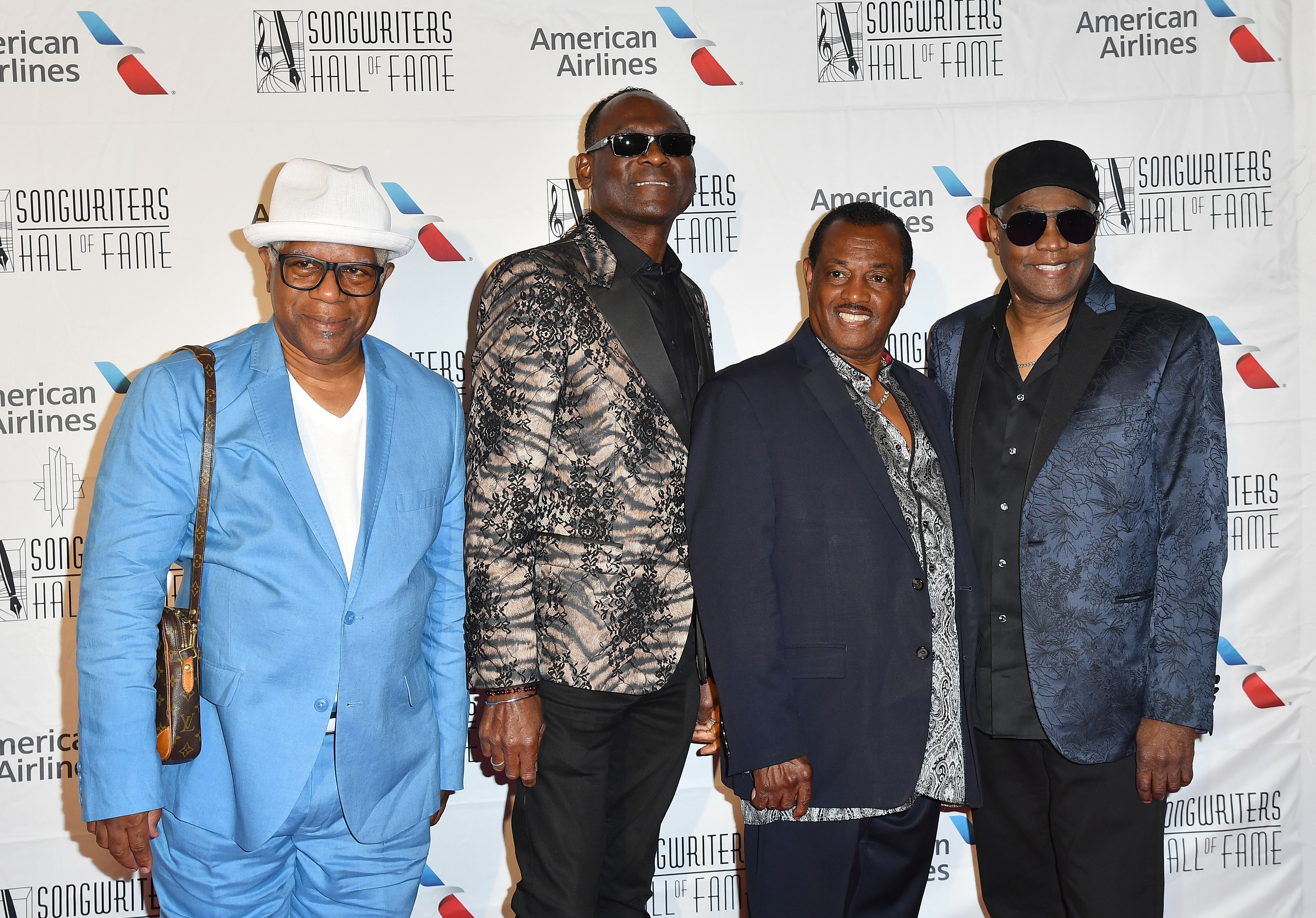Dennis Thomas: R&B’s ‘cool cat’ and founding member of Kool & The Gang
Armed with a saxophone and colourful shirts, Thomas lent his talent to smash hits such as ‘Celebration’ and ‘Jungle Boogie’

Dennis Thomas was one of the founding members of Kool & the Gang, the quintessential R&B music outfit of the Seventies and Eighties, responsible for such hugely memorable and successful tracks as “Celebration”, “Get Down On It”, “Jungle Boogie” and “Ladies’ Night”.
“DT” Thomas, who has died aged 70, was the band’s MC, its percussionist, flautist and alto-sax player.
Born in 1951 in Orlando, Florida, he moved to Jersey City, New Jersey, with his family at the age of two. Growing up in the Lafayette area, he and his fellow musicians first performed together as teenagers, with Thomas on saxophone.
Formed in 1964, his group had played a regular Sunday concert at a local theatre as the Jazziacs, changing names several times before settling on Kool & the Gang. The band released their eponymous first album on De-Lite Records in 1969. A self-titled first chart single stood out as a rhythmic dance piece, centred on the horn section, but had remained a pick of the cognoscente.
Band member Robert Bell recalled: “Our sound was defined I think by the horns because that was primarily instrumental in a street background and the late Charles Smith came up with these incredible guitar line that were almost like James Brown but not quite it. The way he expressed himself playing those licks on ‘Funky Stuff’, and on our first record Kool & the Gang, it was all influence from our predecessors that came before us.”
The group broke through commercially in 1973 with Wild and Peaceful, an album that included tracks such as “Hollywood Swinging”, “Funky Stuff” and “Jungle Boogie”. These foot-stomping tunes firmly cemented their place on the funk scene. The track “Summer Madness” would later feature in the second top-selling movie soundtrack of all time, Saturday Night Fever, and go on to earn the group a Grammy award.
James “JT” Taylor joined in 1978, becoming lead singer just a year later and catalysing a transformation that turned the already popular Kool & the Gang into a huge hit machine. Robert Bell later recalled: “Some people said we sold out! We tried to keep our identity. But [producer] Eumir Deodato was saying, ‘Listen guys, you have to make room for the singer now.’ And it was a successful run.”

The band had by then already released 10 albums that had hovered in the lower reaches of the charts. Their eleventh, Ladies Night, went quickly to No 1 in the R&B charts and made the US pop top 20, featuring a single of the same name that reached the top 10.
Six further studio albums between 1980 and 1986 gained platinum or gold certifications in the US, including Emergency (1984) which sold two million copies in America alone.
Although their influence had declined somewhat after the mid-Eighties, the group had found a renaissance in the Nineties and beyond through the widespread sampling of their classics by a new generation of musicians. Adapting the R&B rhythms into their own interpretations in the world of hip-hop and house music, perhaps the most visible example of this phenomenon was “Summertime”. The 1991 hit by the duo DJ Jazzy Jeff & The Fresh Prince drew on Kool & the Gang’s “Summer Madness”, a song released some 17 years earlier.
There was a further resurgence of interest in the band in 1994, when Quentin Tarantino included “Jungle Boogie” on the soundtrack to his film Pulp Fiction, which went on to sell over 2 million copies.
Thomas’s band received two Grammy Awards and seven American Music Awards for their contribution to the music business. In 2015 Kool & the Gang received a star on the Hollywood Walk of Fame and in 2018 were inducted into the Songwriters Hall Of Fame.
Thomas’s most recent appearance was for a concert at the Hollywood Bowl in Los Angeles for Independence Day. He had latterly lived in Montclair, New Jersey, where the band said that he had died “peacefully in his sleep”.
His colleagues said: “Dennis was known as the quintessential cool cat in the group, loved for his hip clothes and hats, and his laidback demeanour. A huge personality while also an extremely private person, Dennis was the alto saxophone player, flutist, percussionist as well as master of ceremonies at the band’s shows. Dennis’s prologue featured on the group’s 1971 hit, ‘Who’s Gonna Take the Weight’ is legendary and an example of his showmanship.”
Thomas is survived by his wife, Phynjuar Saunders Thomas, sons Davidand Devin, and his daughter Tuesday Rankin.
Dennis Thomas, musician, born 9 February 1951, died 7 August 2021


